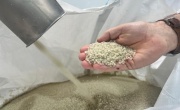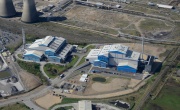Defra calls for evidence on RDF market
The Department for Environment, Food & Rural Affairs (Defra) is calling for evidence on what the ‘challenges’ facing England’s refuse-derived fuel (RDF) market are, and ‘how these might be managed’.
The open consultation, launched today (12 March), seeks to help ‘fill the gaps in [Defra’s] evidence base to help [it] determine whether there is a need for some form of intervention to deliver the desired environmental outcomes’ for RDF, which is produced from waste that has ‘undergone some sort of process, from sorting and bailing to mechanical treatments’.
Defra is calling on those working in, or with, the energy-from-waste (EfW) industry to submit evidence on the following areas:
- how RDF is made and who uses it;
- the ‘issues’ with domestic use of refuse-derived fuel;
- the ‘challenges’ faced in exporting this type of fuel; and
- whether government action is needed to improve the market (particularly in terms of achieving environmental benefits), and what this should be.
Producing a standard for RDF
The call for evidence documentoutlines that within the waste hierarchy, EfW has an important role to play but there needs to be an emphasis on ‘getting the most energy out of the residual waste, rather than to get the most waste into energy recovery’.
Defra says that the government is ‘keen to ensure that RDF produced for both the domestic market and for export is limited to material which cannot be effectively recycled, and the combination of fuel and technology is sufficient to deliver clear environmental benefits’.
Pointing to reports on the economic impact of exporting RDF, such as the ‘Research into SRF and RDF Exports to Other EU Countries’published by the Chartered Institution of Wastes Management (CIWM) last year, Defra argues that the government is ‘concerned that minimally treated RDF being produced for export does not necessarily achieve the best environmental outcome in terms of the waste hierarchy or support wider aims around energy security and self-sufficiency’.
It highlights that as there is currently no formal definition or standard for RDF either in EU legislation or in domestic legislation, the current level of pre-treatment for RDF can be minimal, meaning that the waste is ‘in essence very similar to unsorted waste in its nature’. It adds that it may be useful to make a clear distinction between ‘waste-derived fuel’ and untreated municipal solid waste (such as Northern Ireland Environment Agency’s regulatory position statement on the sort of treatment needed before a waste can be classified as RDF).
As such, it is calling for evidence on ‘what evidence and assumptions’ government should use in considering any future action, including:
- whether some form of standard would address the issues around RDF production and use;
- how such a standard could be enforced ‘in light of the government’s policy of removing red tape and reducing burdens’;
- the level of processing done prior to exporting RDF and how this compares with the level of processing for RDF used domestically;
- the waste streams and codes of waste being put into RDF;
- the number of facilities producing RDF and the total amount of RDF produced;
- the content of exported RDF, particularly any recyclates and the biogenic content;
- the main users of higher-quality RDF on the domestic market;
- how the composition of waste and RDF are changing over time;
- the reasons for storing large quantities of RDF for long periods and its impacts; and
- the extent to which policy changes and actions to improve the quality of recycling and/or to meet the targets for packaging and household waste recycling are likely to affect the ‘production, composition and marketing of RDF’.
The Scottish, Welsh and Northern Ireland governments have all reportedly agreed to work with Defra on the RDF policy ‘to consider the implications of the work for their devolved policy interests’.
Respondents have until 9 May 2014 to submit evidence to Defra’s Residual Waste Team.




